-
 +11 +1
+11 +1Some Canadian writers you haven’t met (yet) – Happy Canada Day 2021
Everybody loves a good book. It's almost Canada Day, and could there be a better time to discover new Canadian writers?These writers have very little in common. They are all Canadian. They are all
-
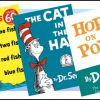 +11 +1
+11 +1Dr. Seuss books – to cancel or not to cancel?
It is right to rethink old literature. But does cancel culture amount to book burnings? Sooner or later, everybody gets cancelled, but I could not imagine why anybody would pick on Dr. Seuss, a childhood favorite of mine.
-
 +11 +1
+11 +1Who Did J.K. Rowling Become?
Deciphering the most beloved, most reviled children’s-book author in history.
-
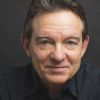 +20 +1
+20 +1This Is 'Creepy': Lawrence Wright Wishes His Pandemic Novel Had Gotten It Wrong
Lawrence Wright is not interested in saying "I told you so." At the beginning of his new novel, he writes: "Dear Reader, The events depicted in The End of October were meant to serve as a cautionary tale. But real life doesn't always wait for warnings." Wright's fictional tale is about a mysterious virus that starts in Asia, sweeps across continents, cripples the health care system, wrecks the economy, and kills people worldwide.
-
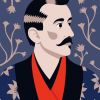 +15 +1
+15 +1Why Lafcadio Hearn’s Ghost Stories Still Haunt Us
In his fifty-four years among the living, Patrick Lafcadio Hearn wrote twenty-nine books in just about every conceivable genre—folktales, travelogues, novels, cookbooks, translations, dictionaries of proverbs—none of which can compete, in terms of sheer Dickensian horror and pluck, with the story of his own life. He was born in 1850 on the Greek island of Lefkáda (one of the Ionian Islands, at the time still under British control), to an Ionian mother named Rosa and an Irish father, Charles, who was stationed there as a staff surgeon in the British Army.
-
 +2 +1
+2 +1A Strange Blight
As we grind up against the absolute limits of humanity’s use and misuse of our environment, it’s tempting to look to Silent Spring and ask why it had such a profound impact. By Meehan Crist.
-
 +36 +1
+36 +1Science Fiction Doesn’t Have to Be Dystopian
In Ted Chiang’s new collection of stories, technology can be a force for human—and robotic—good. By Joyce Carol Oates.
-
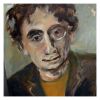 +11 +1
+11 +1The Psychology of Russiagate
America in denial: Gabor Maté on the psychology of Russiagate. With Aaron Maté.
-
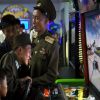 +4 +1
+4 +1Book Review: “A Traitor’s Guide to North Korea”
Andrei Rogatchevski reviews Forræderens Guide til Nord-Korea by Morten Traavik.
-
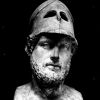 +18 +1
+18 +1A Possession for All Time
How should we read Thucydides? By Johanna Hanink.
-
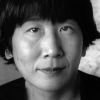 +18 +1
+18 +1The Overlooked Autofiction of Yuko Tsushima
At times, autofiction can seem to refer not so much to a genre as to our desire, collectively, to seek the author in a text. We group together novels by Rachel Cusk, Karl Ove Knausgaard, and Jenny Offill because they make it easy to presume that the writer is the protagonist. This freedom feels new, so we assume that autofiction must be new, too. For precedent, we reach for “Reality Hunger,” David Shields’s manifesto, from 2010, in which he called for a “deliberate unartiness.
-
 +3 +1
+3 +1The Black Disk of the Sun
Boris Dralyuk appreciates a “riveting political biography” of Mikhail Sholokhov, “Stalin’s Scribe” by Brian J. Boeck.
-
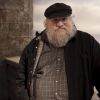 +16 +1
+16 +1George R.R. Martin Rumored to Be Working on New Game with FromSoftware
A rumor has emerged on the web suggesting that Game of Thrones author George R.R. Martin is working with FromSoftware - the developers of Dark Souls, Bloodborne, and the recently-released Sekiro: Shadows Die Twice - on an open-world video game. The rumor emerged on the Spawn Wave YouTube channel, citing Liam Robertson (a writer with a good reputation for scoops) as its source. Spawn Wave makes it clear that nothing here has been confirmed publicly, and therefore we should come at this story with some skepticism.
-
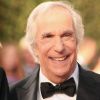 +2 +1
+2 +1Dyslexia Made Henry Winkler Feel 'Stupid' For Years. Now, He's A Best-Selling Author
You may know Henry Winkler as The Fonz from Happy Days or the "very good" Bluth family lawyer from Arrested Development. Or perhaps, more recently, for his Emmy-winning role as the eccentric acting coach Gene Cousineau on the HBO comedy series Barry. But what Winkler is most proud of is, he says, may be his least recognized body of work: his best-selling children's book series Here's Hank, which follows the adventures and struggles of a dyslexic kid named Hank Zipzer. Winkler, who has dyslexia himself, pulls from his own experiences to write the series along with Lin Oliver.
-
 +27 +1
+27 +1Dangerous minds: the writers hounded by the FBI
From James Baldwin to Susan Sontag: the American authors labelled enemies of the state. By Douglas Kennedy.
-
 +3 +1
+3 +1Virginia Woolf? Snob! Richard Wright? Sexist! Dostoyevsky? Anti-Semite!
Not long ago, during an Amtrak ride, I met a college student who told me he was a fiction writer. I asked him what he’d been writing and reading, and he said that he was writing a novel about time travel, and that he was reading — well, he had been reading Edith Wharton’s “The House of Mirth,” but after about 50 pages, he said, he’d tossed it into the trash.
-
 +26 +1
+26 +1Eau de Nil, the Light-Green Color of Egypt-Obsessed Europe
Katy Kelleher presages a boom in eau de Nil, the slippery color that snakes through Egypt.
-
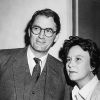 +16 +1
+16 +1The Contested Legacy of Atticus Finch
Only Jesus made his father more famous. Harper Lee’s father was actually named Amasa, but, by the end of his life, he was answering to “Atticus Finch,” a reflection of how closely the character was modelled on him and how wildly well known his fictional doppelgänger had become. When “To Kill a Mockingbird” was published, in 1960, it instantly—and seemingly irrevocably—entered the canon of American literature...
-
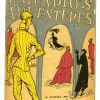 +2 +1
+2 +1Edward Gorey’s Enigmatic World
The book artist Edward Gorey, when asked about his tastes in literature, would sometimes mention his mixed feelings about Thomas Mann: “I dutifully read ‘The Magic Mountain’ and felt as if I had t.b. for a year afterward.” As for Henry James: “Those endless sentences. I always pick up Henry James and I think, Oooh! This is wonderful! And then I will hear a little sound.
-
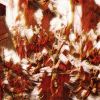 +1 +1
+1 +1Dagger and Swagger
Gary Saul Morson on the literary legacy of 19th-century Russian revolutionary terrorism.
Submit a link
Start a discussion




















